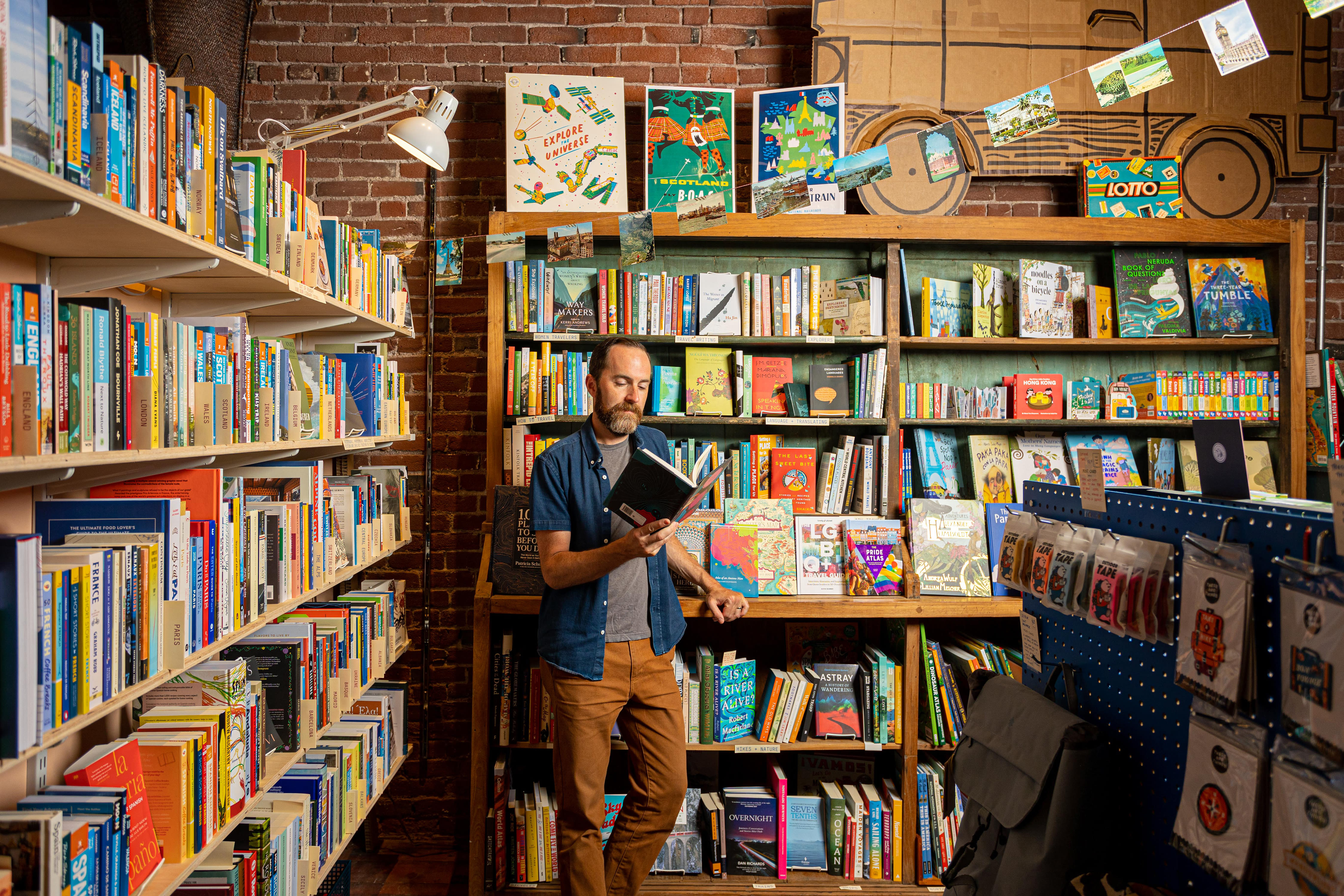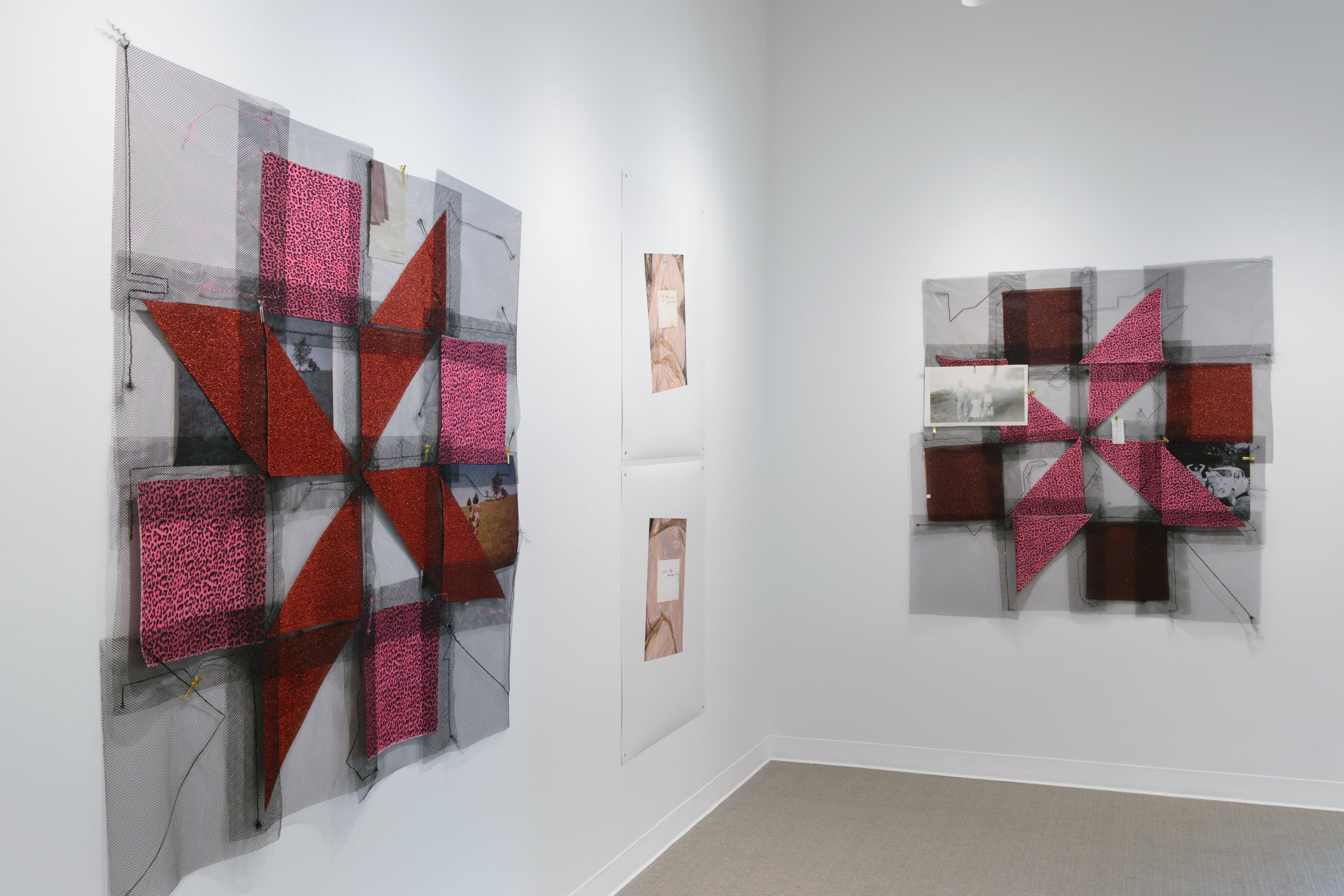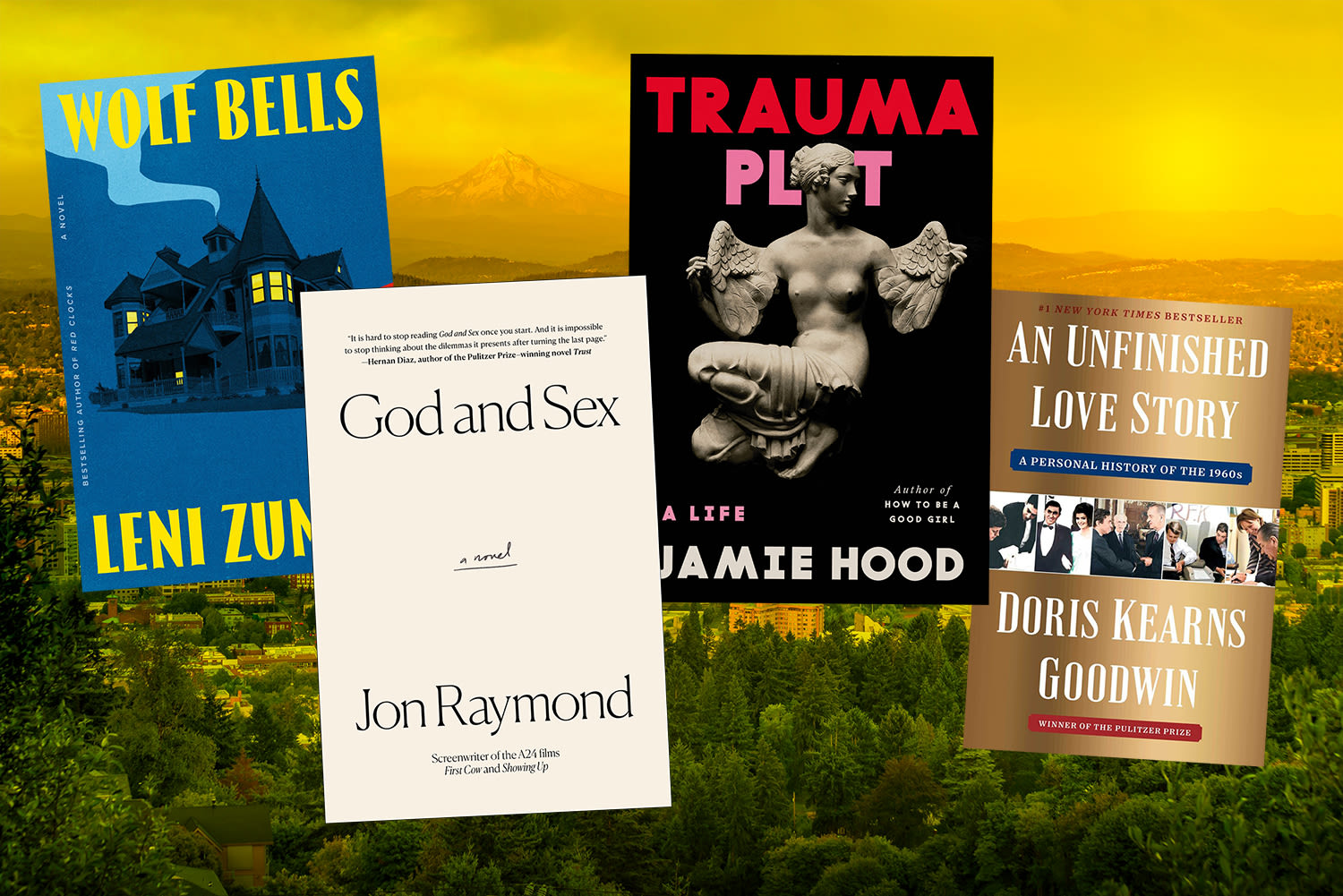Q&A: Home Baking Guru Sam Fromartz
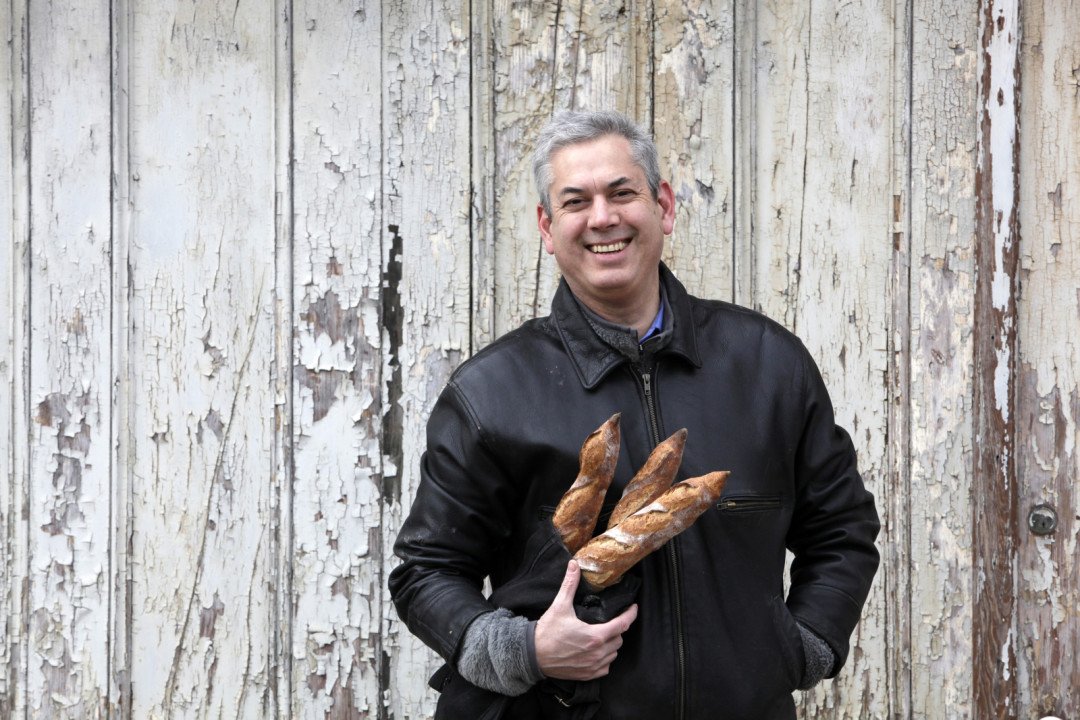
Image: Courtesy Sam Fromartz
Sam Fromartz—Washington D.C.-based writer and editor in cheif of the non-profit Food & Environment Reporting Netowrk—shares his cross-continental journey through boulangeries and bakeries in his new book In Search of the Perfect Loaf: A Home Bakers Odyssey (out September 8 from Viking, 320 pages, $26.95).
Talk about a dream job! As a journalist and devoted home baker, Fromartz was sent on assignment to a Parisian boulangerie in order to learn how to bake baguettes. Although artisanal bread had always been a part of his identity and upbringing, it was not the mid-1990s in Washington D.C. that Fromartz started to wonder who made it and how. After traveling through California, Berlin and France—perfecting loaves of sourdough, dark rye, and pain nature along the way—Fromartz has developed an entirely new perspective on this world-wide staple, as well as the bakers and grains involved.
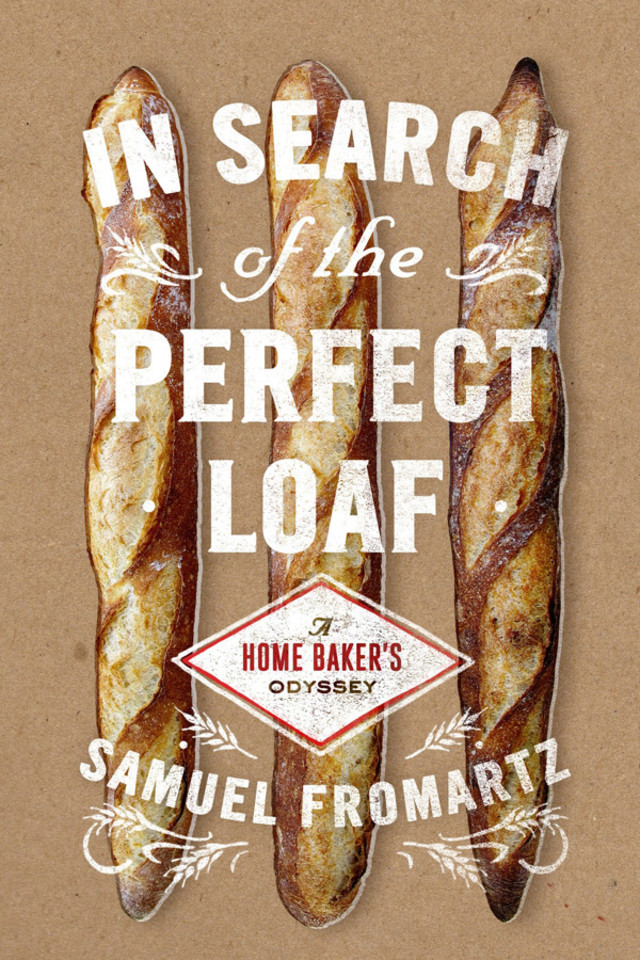
Image: Courtesy Viking
Besides offering a great story, the book is also a call to arms for the newest generation of home bakers. According to Fromartz, good bread comes from good technique rather than the best recipes. The cross-continental search for the perfect loaf has taught that successful bread-baking takes time and depends mostly on the senses. How does the dough feel? What color is the dough before and after oxidation? What is the texture, taste and smell of a freshly-baked bread? Coaxing flavor from the dough, obtaining a light, airy crumb, and baking a crispy, crackling crust are all parts of the process, developed over time and with much practice. The key is to keep at it, developing your understanding of technique.
We spoke with Fromartz about his search for the perfect loaf and his approach to baking abroad and in his home kitchen. Here, he talks tips, travel, ingredients, and challenges of the process:
The book presents the bread-baking assignment as a whim; as a reporter on food and agriculture, why choose bread specifically to study so closely?
I don't feel as if I chose to write this book; I feel like this book chose me! I had been baking for a long time, more than a decade, before I thought about tackling bread as a subject. And it really arose as a series of questions I had about breadmaking that hadn't been adequately answered by the many bread books populating my bookshelves. I wanted to learn how to bake better and to investigate questions regarding grains, sourdough microbiology, the origin of our grain culture in the Near East, and to really try to understand what it takes to make a superlative loaf. And yes, I grew up with bread on the table and had access to a lot of great immigrant bakeries in New York City that have long since disappeared. I think I began baking bread to try and connect with those memories—the book came later.
Why were New York, Vermont, San Francisco and Portland choices for immersion travel before Paris, initially?
I had initially thought about staying in the states and visiting bakers here because it was simply easier to do. Plus, in places like Portland, there are a lot of great bakers to learn from. But, when the opportunity came up to go to Paris to work in a boulangerie, I jumped at the chance. Who wouldn't? Plus I thought if I did that, I might really be able to nail the baguette, which had eluded me for years.
How far have you gone in experimentation with ingredients? How many different flours does it take to find the right one?
I have experimented with enough flour to know there is no "right one." I've baked with local grains from the Pacific Northwest, from Maine, from New York, and from a farm in Maryland about an hour from my house. I also love baking with rye, buckwheat, spelt, barley, oats and even corn. Each of these grains makes a unique loaf. As for white flour, I usually make sure it is milled from hard red winter wheat with a protein level of about 11%. Many all-purpose flours meet that criteria.
Did the search for the perfect loaf take you further than you had originally planned?
I didn't expect to start milling my own flour or work with a local farmer who grows his own wheat. I didn't expect to visit a baker in the South of France who lived in a small village on top of a hill, where he had a windmill to grind the wheat he grew. Nor did I expect to make the rounds of Holocaust memorials in Berlin as part of my bread sojourn there. If you’re really open, you never know what you're going to find or who you going to meet along the way or what is going to be the most special thing about the journey.
What is the best tip for beginning bakers?
A lot of people are intimidated by baking, because it's pretty different from cooking. But the best advice I could give is to just jump in. I always suggest starting with the no-knead recipe that Mark Bittman popularized in the New York Times. It's a very easy recipe to follow and if you do, you will make a decent loaf of bread. The other thing I would suggest is to trust a long fermentation. In our culture, everybody wants things done fast but the secret to great bread is that it takes time. Not work, because you are not actively working while it's rising, but rather the patience to let the dough do its thing slowly.
Want to hear more? Join Fromartz for his talk at Powell’s City of Books on Sunday, September 14 at 7:30 pm. He will also be joined by Tim Healea, head baker of Little T American Baker.
